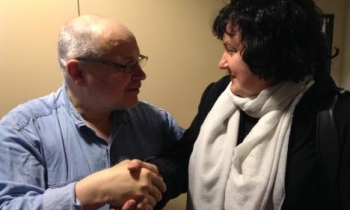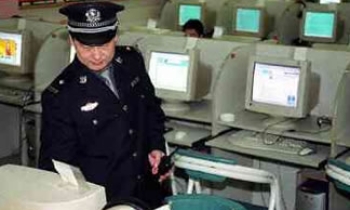One of Singapore's top leaders has defended the lack of journalistic freedom in the country. Former prime minister Goh Chok Tong feels a liberal press is not necessarily good for every country. Goh's statement came in Singapore on Monday during the fifth anniversary dinner of Today, a free tabloid.

The senior minister's remarks came a week after an annual index produced by Reporters sans Frontieres (RSF), a Paris-based media monitoring group, ranked Singapore 140th out of 167 countries � up four notches from last year, but still faring worse than tightly governed states such as Russia and Yemen.
Among countries in the region, Singapore ranked behind Indonesia, Thailand, Malaysia and the Philippines. Even war-torn Sudan came out seven spots above Singapore at number 133. The RSF report said Singapore's low ranking was due to the complete absence of independent media, the application of prison sentences for press offences, media self-censorship, and the opposition's lack of access to state media.
The report cited instances where the government used heavy fines or distribution bans on international newspapers such as the Asian Wall Street Journal, the Economist, and the International Herald Tribune to "silence Singaporeans or foreign journalists" who wrote articles that embarrassed the political elite.
Goh, however, dismissed the RSF report as a "subjective measure computed through the prism of Western liberals", and cited other surveys such as the Transparency International Index and the US-Based Heritage Foundation's Economic Freedom Index, in which Singapore received top ratings.
"I have taken the RSF's Press Freedom Index at face value. It is a subjective measure computed through the prism of Western liberals. The index was compiled based on feedback primarily from 14 freedom of expression groups and 130 press correspondents. It lacks the careful research of hard data like the World Economic Forum's Report on World Competitiveness," he contended.
Transparency International's 2005 survey of corruption perception for 158 countries ranked Singapore as the fifth least corrupt country. Malaysia, Thailand, the Philippines and Indonesia, which had better press freedom ranking, were ranked between 39th and 137th in that order. Sudan was a distant 144th.
The US-based Heritage Foundation's Economic Freedom Index gave Singapore top marks. Singapore was ranked second out of 155 economies. Again, Malaysia, Thailand, Indonesia and the Philippines fell way behind Singapore. They occupied positions between 70th and 121st.
"Western liberals often argue that press freedom is a necessary ingredient of democracy and that it is the fourth estate to check elected governments, especially against corruption. But a free press by Western standards does not always lead to a clean and efficient government or contribute to economic freedom and prosperity," he pointed out.

Defending the city-state's model of press control, Goh said the country should not subscribe to the Western model of a free press that favours criticism and opposition. Singapore's economic performance proves its system works. "My simple point is this: It has not been proven that having more press freedom would result in a clean and efficient government or economic freedom and prosperity," he asserted.
Goh Chok Tong maintained that a free press does not always lead to a clean and efficient government or contribute to prosperity, and went on to insist, "I do not favour a subservient press. An unthinking press is not good for Singapore. But press freedom must be practised with a larger sense of responsibility and the ability to understand what is in, or not in, our national interests."
"Editors need to understand what their larger responsibilities entail and to demand them of their journalists. Editors and journalists must have high personal integrity and sound judgment � people who understand Singapore's uniqueness as a country, our multi-racial and multi-religious make-up, vulnerabilities and national goals."
The minister said, "Capturing readership is an important goal but to do so through sensational coverage is not the right way. The media is free to put across a range of worthy different viewpoints to encourage constructive social and political discourse. It should not parrot the government's position. It would lose its credibility if it tries to be the government's propagandist. A discredited media would not serve our national interests."









